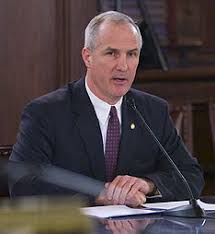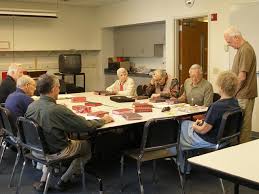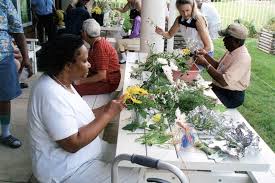Here's our support group, New Directions of Abington, PA.
PA Congressman Tom Murt of Hatboro, PA, R-152, asked my help in reforming our broken-down mental health system. The incentive was the shootings in Newtown, CT.

Tom Murt.
I sent an email to our group members asking for suggestions. A dozen people responded. Their ideas are incorporated in the below proposal.
My colleague, Ada Moss Fleisher, came over and helped to write and structure the essay.
PA Congressman Tom Murt of Hatboro, PA, R-152, asked my help in reforming our broken-down mental health system. The incentive was the shootings in Newtown, CT.
Tom Murt.
I sent an email to our group members asking for suggestions. A dozen people responded. Their ideas are incorporated in the below proposal.
My colleague, Ada Moss Fleisher, came over and helped to write and structure the essay.
MENTAL
HEALTH REFORMS FOR THE COMMONWEALTH
OF PA
Recommendations
1-Mental
Health Clients
Education
classes by peers and therapists such as social workers,
nurses, psychologists. Classes should be held after initial diagnosis of
bipolar, depression, schizoaffective, anxiety, schizophrenia, OCD, etc., directly after client has been discharged from the
hospital, or given a psychiatric diagnosis by a psychiatrist.
Two 90-minute classes
should suffice. If clients have questions, they may follow-up with class instructors.

Explanation of illness,
its course, what to expect, and medications used.
List of resources such as treatment
centers, including private ones – for people with insurance – and the public
sector, for low-income people. New Directions has an excellent list.
These treatment centers
provide psychiatrists and therapists.
Provide “peer specialist”
to visit and check up on client. This is currently provided only for people on
Medicaid. It should be available to everyone.
Helpful online resources
will be given out such as PsychCentral.com
Refer clients to support
groups for peer support.
Classes will be paid for
by insurance companies which will repay themselves by decreasing expensive
hospital stays. They might also be paid for by the Montgomery County Office of
Behavioral Health or the Bucks County Office of Mental Health.

Vocational
Training. Places in Philadelphia include
Jewish Vocational Services, state and federal-funded Office of Vocational
Rehab, and AHEDD for the disabled.
There are also “job
coaches” to help “disabled” individuals find and acclimate to a job.
2-
Families and Loved Ones
Two 90-minute classes
should be provided for families. Focus on understanding what client is feeling –
their fears, altered thoughts, mistrust, paranoia, spending sprees, etc. - and
how to be of help to them. Importance of talking tactfully to them. See video
at Mental Health First Aid where client’s beliefs, even if false, are reinforced by caregiver in order to
help the client get appropriate treatment.
NAMI (National Alliance on Mental Illness) holds classes for
families in their 12-week free Family-to-Family classes, funded by individual NAMI chapters. Classes include those in Philadelphia, Bucks and Montgomery County and others across the nation.

3
- Hospitalization
Many patients leave a
psychiatric hospital without knowing what happened to them. They need a
diagnosis by a psychiatrist. Hospitals should explain to patients - and also to
family members - about the diagnosis and medications given to treat the
condition.
Hospitals are often
perceived as boring places and a waste of time. Hospitals should offer
meaningful therapy, as well as classes such as yoga, mindfulness meditation,
art therapy, horticulture therapy, to make the patient’s stay worthwhile.

Hospitals are often seen as inhospitable, unfriendly places that patients avoid at all costs, many times to their great detriment. If the experience is a pleasurable one, hospitals will get a deserved good name and patients won’t have to be coerced into checking in.
Hospitals are often seen as inhospitable, unfriendly places that patients avoid at all costs, many times to their great detriment. If the experience is a pleasurable one, hospitals will get a deserved good name and patients won’t have to be coerced into checking in.
Crisis
Centers - A crisis occurs
when (1) someone has suicidal thoughts or is so depressed they are unable to care
for themselves or (2) when they are manic and a danger to themselves and others.

Crisis centers are located
at general hospitals, though not all of them contain one. They are also a part
of psychiatric hospitals.
The admission process may
take many long hours, while the patient is acutely ill and suffering terribly,
many times with thoughts of suicide. This appallingly inhumane treatment should be corrected.
Compare this to checking into a regular hospital, such as Abington, if you are having a stroke or heart attack. To delay may be fatal.
Compare this to checking into a regular hospital, such as Abington, if you are having a stroke or heart attack. To delay may be fatal.
Respite
Facilities. Strive for small inpatient facilities where
client can be removed from daily stresses and catch his or her breath. A doctor
would supervise medication, if necessary, while staff takes care of patient and offers relaxing
activities such as listed above under hospitals. In the past, one such excellent place
was The Ranch House in Norristown,
PA, closed due to lack of
funding.
4-Community
Education

Education
for police officers is provided by Montgomery County Emergency Service for all Montco police districts. NAMI Bucks County
does police officer training in Bucks
County.
However, since MH clients
are often too ill or psychotic – out of reality - to obey simple orders and may
even appear violent, officers may get unnecessarily rough. Refresher courses
should be offered with the enthusiastic backing of the police chief. This will help the officers do their jobs in
the best way possible and they will be grateful.
School
personnel such as teachers, counselors, nurses from
K-12 often encounter mentally ill children and teens. They should have yearly
in-services by: “a certified peer specialist,” (this is a person with a mental
illness who has been trained to talk about mental illness), knowledgeable
mental health clients, nurses or therapists on how mental illness manifests in youngsters - which is often different than adults -
and what to do about it, including where to refer them.
One such program already
in place in PA is the PA Student Assistance or CSAP which deals with both
mental illness and substance abuse. See website.
Talks
to the entire student body from middle
school on up to encourage tolerance and support of classmates with MH
issues and also of parents who may have MH issues. Currently, Bucks
County NAMI is holding 50-minute “Health Classes” to help students understand
their mentally ill peers.
Talks
to corporations, businesses, fraternal organizations,
churches and synagogues, nursing schools, medical schools, family doctors’
offices to foster understanding and tolerance.

College
campuses. A distinguished organization called “Active Minds on
Campus” educates students about mental illness at colleges across the country. They
offer education and support. See website.
Public
Awareness of Mental Illness and Media Coverage. Publicity
about mental illness is critical.
We, in New Directions, have written guest columns and
letters to the editor, have appeared on Comcast Newsmakers and public radio.
Every
May the National Alliance on Mental Illness (NAMI.org) has an awareness walk in
every state of the union. In Montgomery
County, the Walk is held at Montgomery County Community College
on a Saturday morning.
This year’s date is May 4. Last year, the walk was briefly covered by Action News.
This year’s date is May 4. Last year, the walk was briefly covered by Action News.
One excellent anti-stigma campaign was developed in Australia and imported to the U.S. “Mental Health First Aid” is
being used in many states and we suggest its implementation in PA.
This interactive 12-hour course grants a certificate to teach the program in the community.
This interactive 12-hour course grants a certificate to teach the program in the community.
Charlie
Rose on PBS has a wonderful series on the Brain, in which mood disorders and
schizophrenia have been thoroughly discussed and real people with the illness
have appeared. What an excellent way to educate the public.
More
positive TV appearances are suggested.
How
about a “ribbon” on the back of a car for “Mental Health Awareness.”
Mental
illness needs to be brought out in the open. By hiding it, we perpetuate the
prejudice against people with mental illness. The community needs to know that
“We have more in common with you than we have differences.”

This is excellent and if ok with you, I would like to reblog it if I can figure out how. While some of it is area specific, much of it can be applied to any area in the US and thanks for all of your work and ongoing efforts in your extended community.
ReplyDeleteiris, you can certainly reblog it BUT the spacing didn't come out right b/c i transferred it from a word document, so i'll email you the original. thanks for your interest as always.
ReplyDeletePosted it! Great work and let's hope it passes and things are implemented.
ReplyDeletethanks for posting. just came home from movie afternoon for new directions. someone brot a remake of robin hood starring kevin costner and morgan freeman, a real swashbuckler movie. i really enjoyed it. scott and i just went on a nature walk and i'm eating a huge delish salad for dinner, as i write.
ReplyDelete